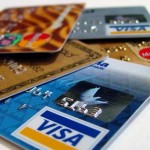 Credit card debt is a big reason many people seek out bankruptcy. It is not uncommon for people to come visit with me who have $100,000 or more of credit card debt. After a job loss, reduction in pay, or unexpected medical expense many people turn to credit cards to compensate for increased expenses or decrease in income. The good news is that most credit card debt can be eliminated or “discharged” through the bankruptcy process.
Credit card debt is a big reason many people seek out bankruptcy. It is not uncommon for people to come visit with me who have $100,000 or more of credit card debt. After a job loss, reduction in pay, or unexpected medical expense many people turn to credit cards to compensate for increased expenses or decrease in income. The good news is that most credit card debt can be eliminated or “discharged” through the bankruptcy process.
Chapter 7 bankruptcy is great for eliminating unsecured debts. An unsecured debt is one in which there is no collateral securing the loan. The most typical forms of unsecured debt are credit card debts and medical bills. In a chapter 7 bankruptcy these types of debts are discharged 100%. You will not have to pay the debt and the creditor is barred from ever trying to collect on that debt again. There are a couple of pitfalls that you need to be aware of before filing for bankruptcy as it relates to unsecured debts.
Luxury Item Purchases
First, certain credit card use prior to filing for bankruptcy can cause problems. If you use your credit card to purchase “luxury” items totalling more than $550 within 90 days prior to your bankruptcy filing the bankruptcy court may deem those specific charges “non-dischargeable,” meaning that they won’t go away in bankruptcy. While the bankruptcy code does not specifically define what a luxury item is, it does not include goods or services that are reasonably necessary for the support of your household. See 11 U.S.C. § 523.
Cash Advances
Next, if you take a cash advance on your credit card of more than $825 within the 70 days prior to your bankruptcy filing that debt can be deemed non-dischargeable as well. This one is more clear cut – if you took the cash advance, plan on paying it back.
One caveat to both of these exceptions is that while there is a presumption in the bankruptcy court that the purchase of luxury goods and cash advances are non-dischargeable, the creditor must make an appearance in your bankruptcy case and ask the bankruptcy court to make the determination that they will not be eliminated in your bankruptcy. So even if you have those types of charges on your credit card, if the credit card company does not come to the bankruptcy court and request that the debt be deemed non-dischargeable, it will still be eliminated in your bankruptcy case.
I offer a free bankruptcy consultation where we can discuss your specific case and determination what relief is most appropriate for your situation.
Arizona bankrutcy attorney John Skiba can be reached at (480) 428-4028 or via email at john@skibalaw.com .
Schedule a Free Consultation!
 John Skiba, Esq.
John Skiba, Esq.
We offer a free consultation to discuss your debt problem and help you put together a game plan to eliminate your debt once and for all. Give us a call at (480) 420-4028
